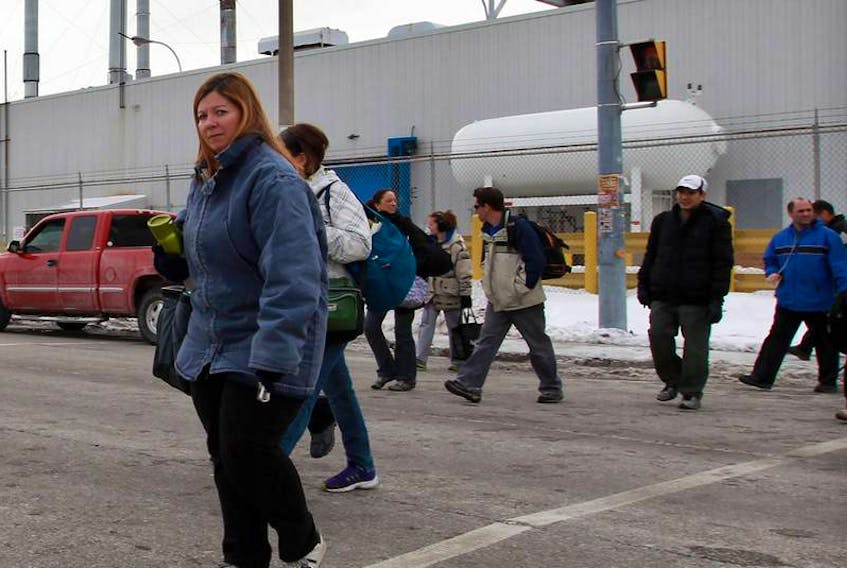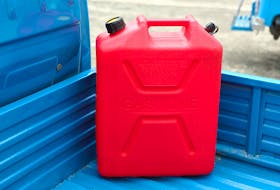WINDSOR, Ont. — Fiat Chrysler’s Windsor Assembly plant is the latest Canadian operation to be struck by both changing consumer tastes and the complex economic headwinds rattling the North American auto industry, analysts say.
The Italian American automaker said Thursday it would cut 1,500 jobs as it eliminates a third line at the facility, which produces the Chrysler Pacifica and Dodge Grand Caravan. The move comes on the heels of General Motors’ November announcement that it would shut down its Oshawa assembly plant, cutting 2,600 jobs as it discontinues the Chevrolet Impala and Cadillac XTS Sedans.
Every vehicle company in Canada is making serious cuts in some way shape or form and that’s to be expected in a market like this.
While the GM decision was mainly driven by structural changes in the industry including a shift to electric cars, Fiat’s announcement reflects a cyclical downturn that has seen auto sales decline for 14 of the last 15 months, said Dennis DesRosiers, a leading Canadian auto industry analyst.
“Everybody has to understand that the overall market is down and though it’s unlikely to get much worse, we don’t see any possibility of a short term turnaround,” said DesRosiers, who expects sales to fall by three to five per cent this year. “So everybody’s in the same pond and everybody’s struggling. Virtually every vehicle company in Canada is making serious cuts in some way shape or form and that’s to be expected in a market like this.”
Fiat Chrysler will not be shifting production to any other facility, the firm’s spokesperson, Lou Ann Gosselin said, adding the decision to remove a line at Windsor was intended to “better align production with global demand.”
The Windsor plant is Fiat’s sole provider of minivans, a segment that has steadily lost its lustre with drivers drawn increasingly to SUVs and crossover vehicles. Sales of the Dodge Grand Caravan fell 31 per cent in Canada in 2018 compared to a year earlier, while sales of the Pacifica dropped by 3 per cent. Meantime Pacifica sales were flat in the U.S. and Grand Caravan sales increased by 21 per cent, said Scotiabank economist Juan Manuel Herrera.
“It is owing to this decline in demand for minivans… that Fiat has decided to suspend its third production shift at the Windsor plant,” Herrera said in an email.
In this sense, Fiat’s decision “mirrors GM’s closure of its Oshawa plant, which was only set to assemble low-in-demand sedans once it stopped temporarily carrying out final assembly of a couple of truck models,” he added.
The U.S. and Mexico have been outperforming Canada on automotive investment since the economic recovery in 2009, said Kristin Dziczek vice-president of industry, labour and economics at the Center for Automotive Research in Michigan. But in the last couple of years, auto companies have dramatically scaled back their investments on both sides of the border amid slowing markets, rising interest rates and trade uncertainty.
Between 2010 and 2017, U.S. automakers invested approximately US$4 billion per quarter in their operations, a pace that has more than halved to US$1.7 billion per quarter since then.
“We’re in a period where there’s not a lot of investment anyway,” Dziczek said. “Things are just slowing down. And in the case of Windsor, two shifts straight time is regular capacity anyway. Three shifts is really knocking the doors out and getting all the production you can out of the bricks and mortar.”
In addition to sluggish markets, automakers are facing a “lot of other storm clouds on the horizon,” including uncertainty over Brexit, economic slowdowns in China and Europe and doubts about whether the renegotiated North American Free Trade Agreement will be ratified in the United States, Dziczek said.
Gosselin of Fiat said trade tensions were not a factor in the decision to cut a third shift in Windsor. But in the industry as a whole, the ongoing turbulence over market access and trade is undoubtedly taking a toll on investment, Dziczek said.
“The least risky thing to do right now is to pick the U.S., but given the trends we’ve witnessed in investment what we’re actually seeing is more companies just sitting on their hands and waiting to see where it all lands,” Dziczek said.
• Email: [email protected] | Twitter: naomi_powell









